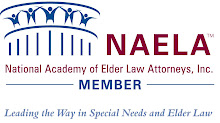The process of moving is always stressful, and can be even more stressful when moving into a long-term care or assisted living facility. Often, there is a stack of paperwork ready to fill out when you arrive at the facility, and there is pressure to sign all of the paperwork immediately and quickly.
I advise, without reservation, that every new resident and his or her family read all admission contracts in full before signing. I also recommend that new residents hire an attorney to review the contract if at all possible. If there are illegal clauses in the contract, you may be able to simply cross them out before you sign. If you have already signed a contract, there may be some clauses that are not enforceable.
Below are some tips about the regulations governing long-term care facilities. For more information about the law, follow this link to the Massachusetts Regulations. http://is.gd/4Xs7A (940 CMR 4.00 )
In the Commonwealth of Massachusetts:
• A long-term care facility may not require that a third party guarantee payment for a potential resident’s care, whether or not the third party is the elder’s legal representative (such as a guardian or attorney-in-fact) or family member.
• A long-term care facility may not require that a potential resident waive the facility’s liability to the elder for loss of property or for injury as a result of the facility’s negligence.
• A long-term care facility may not require that a potential resident limit his or her choice of attending physician, nor may a facility require that a potential resident purchase medications from a specific pharmacy.
• All long-term care facility contracts must be in 12 point font or larger and in a language the elder understands.
• A long-term care facility cannot require that a potential resident waive any statutory or regulatory rights designed to protect residents of long-term care facilities. This includes arbitration clauses. A long-term care facility cannot make an elder sign an arbitration agreement as a condition of residency, but once you sign the agreement you may be bound by it.
Though these tips are an accurate description of the law, they do not always represent how things are done in real life. Sometimes, a phone call or letter from your attorney will resolve any issues that come up with nursing facility admission contracts. Other times, you may have to make a tough decision about if and when to initiate legal action to enforce your rights. My office provides after-hour reviews of admission documents, as do many elder law offices. For existing clients, I also offer emergency admission reviews.
If you or a loved one are planning a move and you are living outside the Commonwealth, are overwhelmed with the process, or are just busy, consider the following:
• Geriatric care managers can provide great advice about where to move, and can help you obtain a room at your first choice facility.
• Once you have found a great location, a move management service might be able to help with the actual move. I just learned about move management yesterday and plan to learn more over the next few months. Check out: http://www.athoughtfulmove.com/ and http://www.transitionsliquidation.com/
Thanks for reading!
-Audrey
Subscribe to:
Post Comments (Atom)


No comments:
Post a Comment